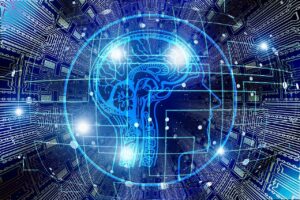Innovation vs Distraction: Teacher’s involvement
Technology, and more specifically educational technology (also known as ed tech), can be a double-edged sword. It can be a useful tool which provides enriched and meaningful learning (with a hint of fun). It provides an environment of engagement with material and learning new skills. Ed tech can also be a distraction from the lesson, and provide no meaningful addition to the information being learned. It is flashy, and does very interesting processes, but ultimately has the same nutritional value as sugar: none. It can also be wildly problematic in the hands of those who are unaware of the drawbacks and dangers technology can pose. The onus is really on the teacher, and their pedagogy, as to the success educational technology has within their classroom. As we saw in The 100 Worst Ed-Tech Debacles of the Decade, there have been many well-meaning attempts at creating useful technology for the classroom. However, in Postman‘s article “Five things we need to know about technological change”, there is always a tradeoff between advantages and determents with technology. It is essential that not only the developers but also the teachers, remain cognizant of this lesson.
What I find rather interesting is there are several things on The 100 Worst Ed-Tech Debacles of the Decade list that are still readily used in classrooms today. I have seen (and been sent) many TedTalks used in classrooms, Class Dojo used in a majority of classrooms, emails regarding the Hour of Code, and the use of the “flipped classroom” to name a few. While well-meaning, understanding the underlying purpose is always important. With the insane level of data that advertising complies due to your online habits, it is prudent to think about the data footprint that we create with our students. Not only this, it is important to remind everyone that privacy is difficult to maintain unless you are prudent. Furthermore, being cognizant of the ideology of those who own and run these platforms is important. This can help identify problematic information, the absence of specific voices and areas where critical analysis is essential. While Twitter was an environment of connection and collaboration at one point; it has become a swampy marshland of trolls and questionable morals. TikTok, while connecting the world, has horrible privacy regulations. The use of ed tech (and social media) in the class is only as useful as the user is up-to-date and critical of the material.
At the same time, teachers should be excited about the advancements in technology and their place in the classroom. AI is a prime example of this. ChatGPT has taken the world by storm, and our students are no exception. What I find important is that we meet the students where they are and do not dismiss the idea of new technology completely. At one time, computers were the demonized technology. It was foretold that computers would be the downfall of education. As we can see, this was not the case. However, (and this is a big caveat) while AI is new, it is important to remember that it is untested. The lessons we learn, the ROI on learning, and the implications have not been studied in any meaningful matter. It is important to remain critical regarding its use. As Postman would say, AI is already becoming mythic. We must be aware and objectively critical regarding its potential benefits vs its potential determents. It should not become a main source of ed tech until there is further research on the matter.
As the world evolves, our pedagogy and engagement with technology should evolve with it. It is important to remember that while technology is beneficial, there are many factors to consider before its inclusion in the classroom. It is an exciting time in the ed tech realm, and I am anxious to see its advancements within the next few years.
